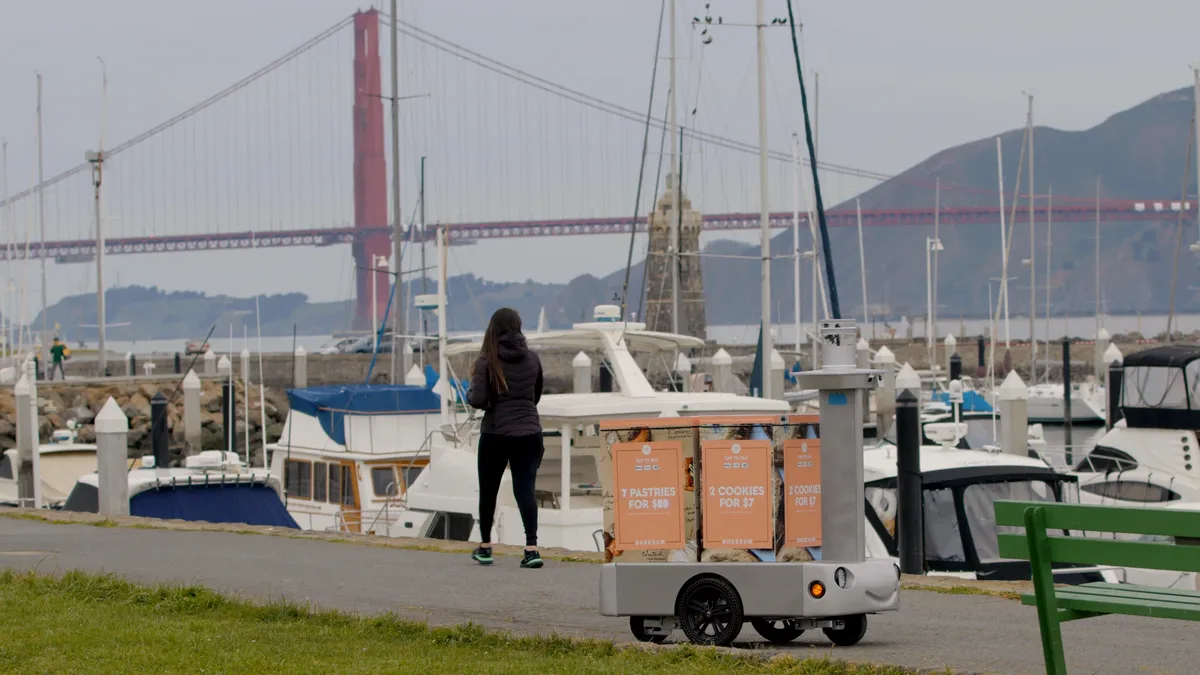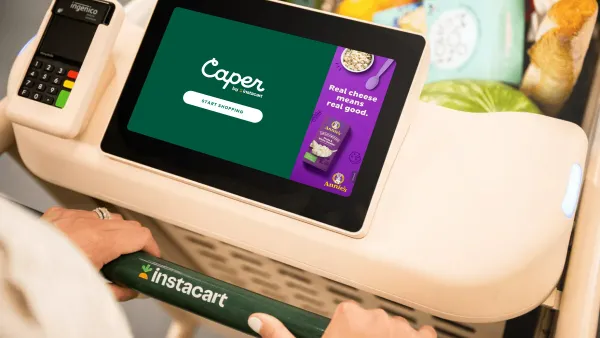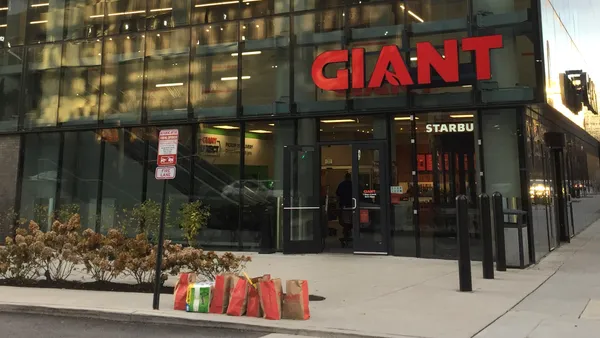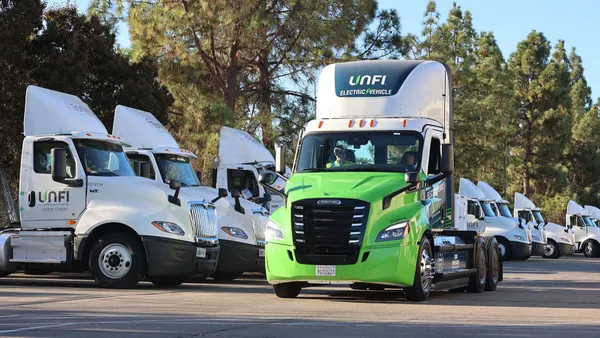Dive Brief:
- Retail automation startup Tortoise has unveiled mobile "smart stores" based on remotely controlled containers that allow people to purchase food and other products without interacting with a human worker, the company announced Friday.
- Tortoise is working with more than a dozen partners including Choice Market in Colorado and Chicago-area chain Go Grocer, to launch the unattended self-service units, which each stock a single SKU and allow people to tap a phone or credit card to pay for items.
- The company says its new concept can help retailers bring in significantly greater revenue than they could generate with traditional vending machines.
Dive Insight:
Tortoise is positioning its mobile smart stores as a way for retailers to drive sales by making selected items available in situations where they might otherwise not be accessible to customers, Dmitry Shevelenko, Tortoise's president and co-founder, said in an interview.
Tortoise said early results have found their mobile smart stores can bring in $80 to $100 per hour in sales.
Along with the sales incentive, Tortoise sees the units as a flexible way to meet customers where they are already. The units can move between locations during the day and be used to sell items in front of a retail location after hours, inside a store or at stadiums and other venues, he noted. Customers do not need an account or app to purchase an item.
The concept is a change in course for Tortoise, which had been focused on using its robotic carts to deliver groceries to consumers and ferry them between retail facilities, but then concluded offering a store-on-the-wheels is a better use of its technology, Shevelenko said. The company, which previously partnered with retailers including Safeway and Choice Market to test its electric delivery vehicle, found that people would often approach the containers with the expectation that they could buy something — a pattern that convinced it to pivot to the store-on-wheels idea.
"We saw the same thing happen in all of our deployments, which was whenever the robot was parked at a store or was parked at a corner, people would walk up to it and start talking to it and expect to be able to interact with it. So we took that insight to heart," said Shevelenko.
Tortoise is working with a variety of retailers to launch the mobile smart store concept. In addition to Choice Market and Go Grocer, initial users also include Edith's, a New York City retailer that specializes in Jewish comfort food; London-based digital grocer Jiffy; and Opie Stores, which opened a drive-thru grocery store in South Carolina last fall.
To provide unattended vending capabilities, Tortoise is using the same propulsion system and secured storage units it previously developed for its delivery robots. To interact with shoppers, the company added tap-to-pay readers to the boxes to simultaneously unlock the lid and pay for items.
Each cart accommodates two storage units, each of which is intended to carry multiple individual packages containing the same product, Shevelenko said. The units feature industrial-grade insulation and can hold heating plates and dry ice, and Tortoise is planning to upgrade them with electric climate control systems later in 2022, Shevelenko said.
The carts are controlled by remote operators based in Mexico City, who guide them to the spots where they will be parked, monitor transactions and play audio messages for shoppers.
Tortoise is providing the equipment to retailers with no upfront cost and charges a fee of 10% of gross sales.
Catherine Douglas Moran contributed reporting.












